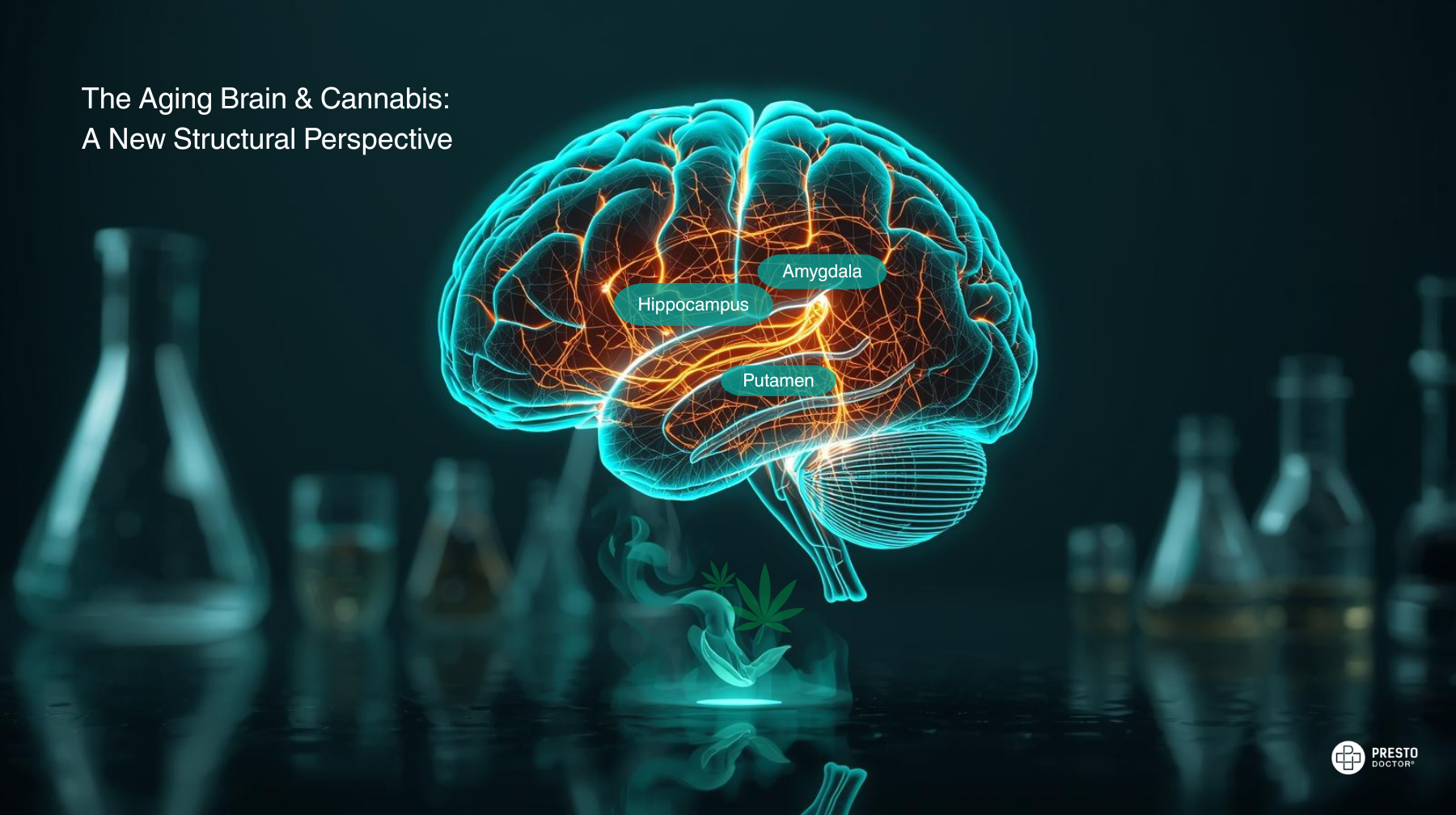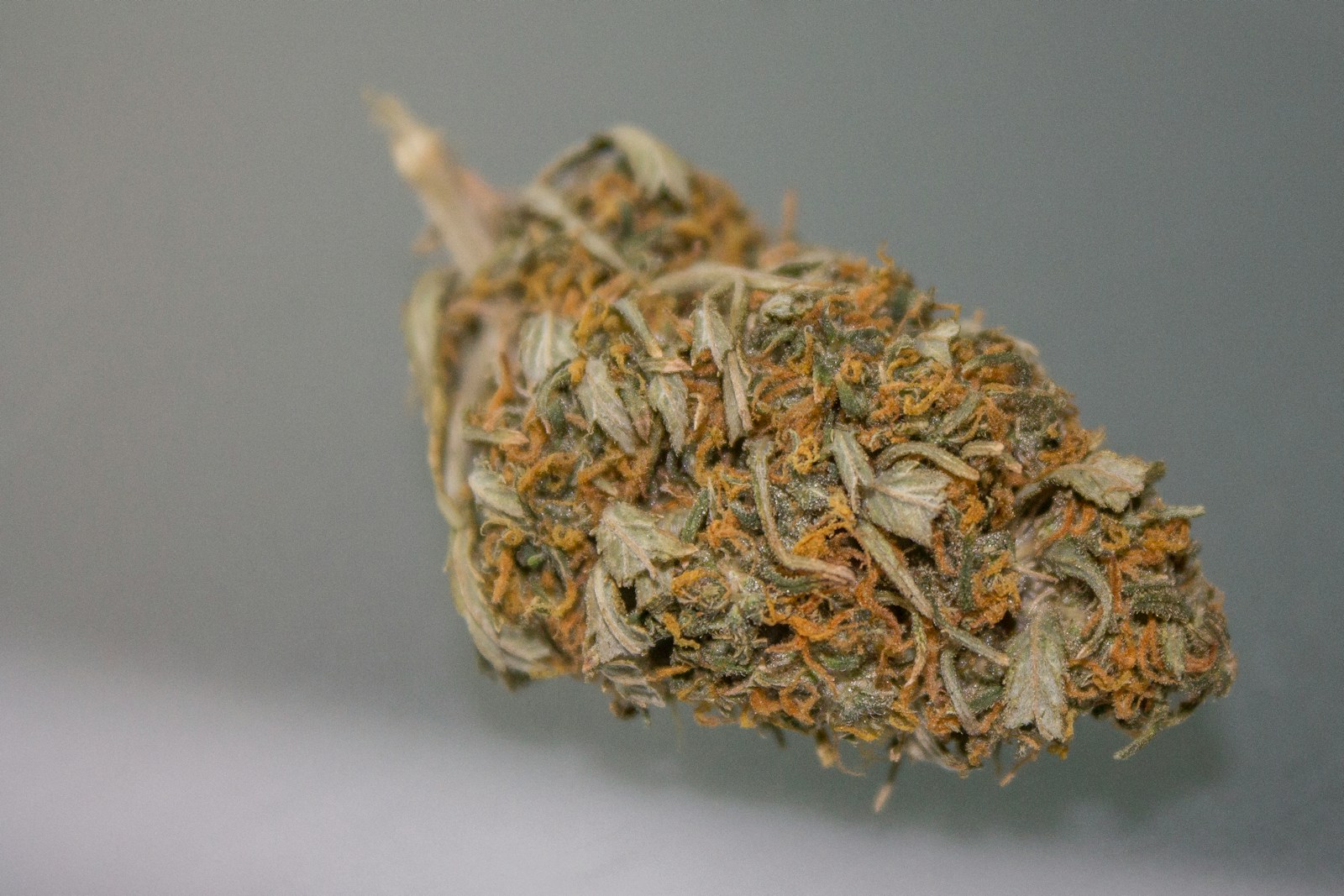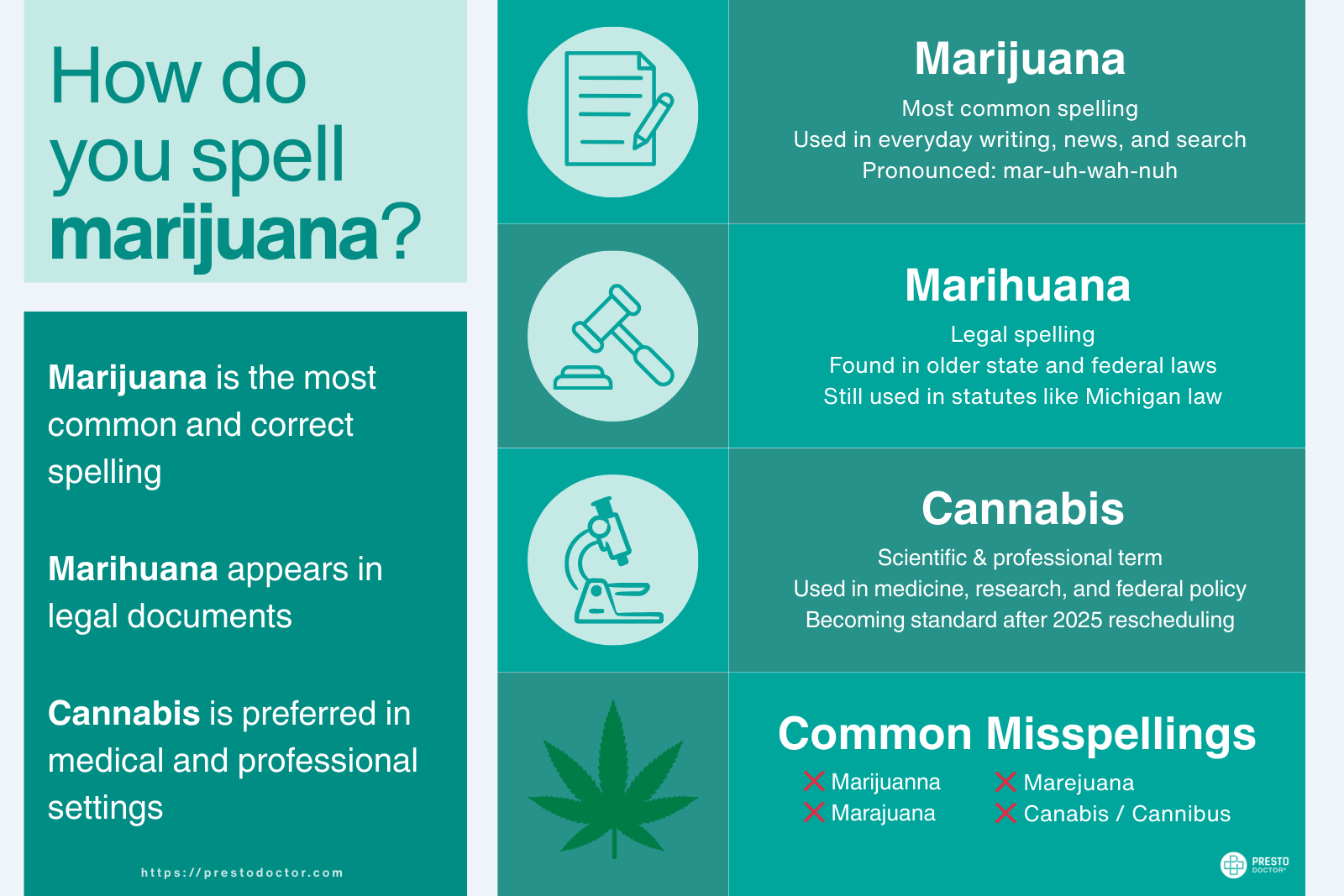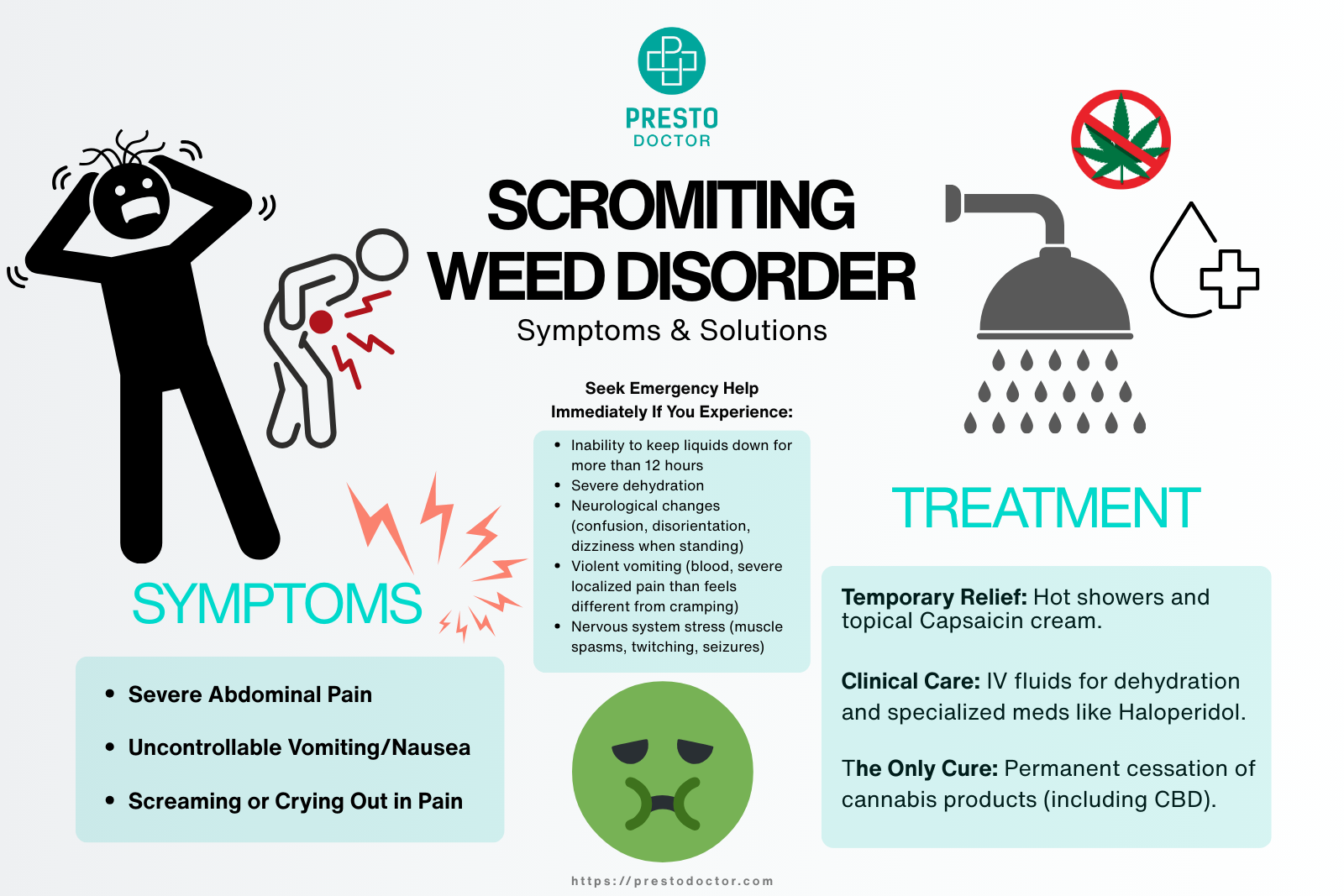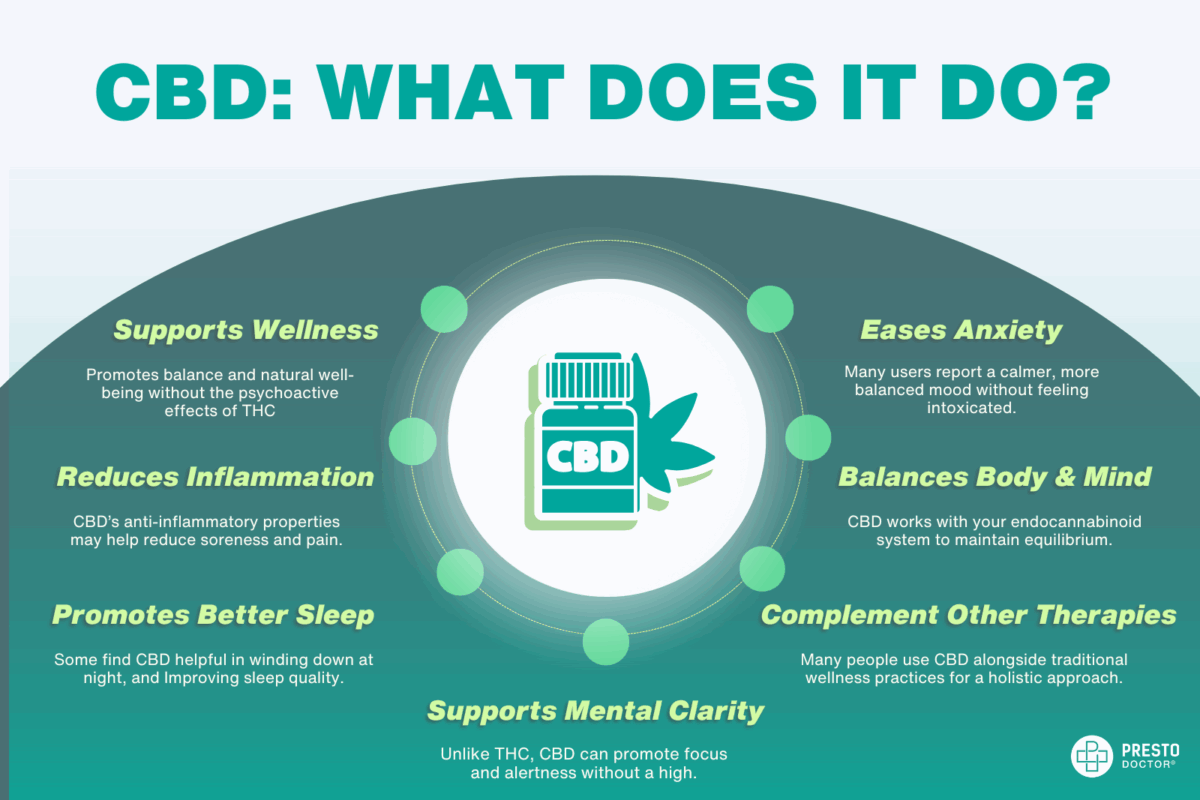
Cannabidiol (CBD) has become a leading natural remedy praised for its potential health benefits. Yet, one major question persists among curious consumers: Can CBD get you high? The short and scientifically supported answer is no. Unlike THC, CBD does not induce a euphoric or intoxicating experience, making it a safe choice. While Cannabidiol does not specifically feel like anything, it can alleviate and help with many ailments including anxiety and inflammation.
Key Takeaways
- CBD is non-intoxicating and will not get you high.
- THC, not CBD, is the primary compound behind the cannabis “high.”
- CBD works differently in the body’s endocannabinoid system (ECS).
- CBD may reduce the psychoactive effects of THC.
- CBD offers numerous potential benefits, including stress, pain, and inflammation relief.
What Is CBD?
CBD, short for cannabidiol, is one of the most studied cannabinoids found in cannabis and hemp plants. Unlike THC (tetrahydrocannabinol), it does not produce a high, but it has shown promising therapeutic effects and can make users feel relief.
CBD vs THC: A Quick Comparison
| Compound | Psychoactive? | Source | Primary Use |
|---|---|---|---|
| CBD | No | Hemp/Cannabis | Anxiety, Pain, Wellness |
| THC | Yes | Cannabis | Recreational Use, Pain Relief |
Can CBD Get You High?
The core answer remains: CBD does not make you high. While both THC and CBD interact with your body’s endocannabinoid system, they do so in very different ways. THC binds directly to CB1 receptors in the brain, causing euphoria. CBD, however, modulates these receptors and others indirectly, promoting balance without intoxication.
How Does It Work in the Body?
The human body contains an internal system called the endocannabinoid system (ECS), which regulates key processes such as sleep, appetite, mood, and pain. Cannabidiol interacts with the ECS in the following ways:
- Enhances natural cannabinoid levels (like anandamide)
- Interacts with serotonin and GABA receptors
- Modulates pain and inflammatory responses
This cannabinoid contributes to homeostasis but does not activate the ECS in a way that causes a high.
Is CBD Psychoactive?
While the term “psychoactive” technically includes any compound that affects the mind, CBD is considered non-intoxicating. It may help improve mood or reduce anxiety, but it does not impair judgment or motor skills like THC does.
Differences Between CBD and THC
Chemical Structure and Brain Interaction
Despite having the same molecular makeup (21 carbon atoms, 30 hydrogen atoms, and 2 oxygen atoms), the arrangement is different. This small change makes a big difference in how the compounds affect the brain.
- THC binds directly to CB1 receptors → causes a high
- CBD indirectly interacts with ECS receptors → no high
Legal Differences
- CBD derived from hemp (<0.3% THC) is federally legal in the U.S.
- THC is classified as a Schedule I drug but legal in some states
Is There An Interaction With THC?
Yes. In fact, some research shows that it can reduce the negative side effects of THC, such as anxiety and paranoia. For those who are sensitive to THC, using CBD in tandem may offer a balanced experience.
How Does CBD Make You Feel?
Most users describe the effects as calming or grounding. The following effects may be reported:
- Reduce anxiety and stress
- Promote better sleep
- Enhance mental clarity
- Ease muscle and joint pain
This cannabinoid can make you feel different sensations depending on dosage, formulation, and also the individual’s body chemistry.
Why Some People Think CBD Gets Them High
There are a few reasons why someone might mistakenly believe it made them high:
- Using full-spectrum CBD that contains trace amounts of THC
- High doses causing sedation or drowsiness
- Low-quality products with inaccurate labeling
- Individual sensitivity to cannabinoids
Always check for third-party lab results to confirm THC content.
Scientific Evidence and Published Research
Clinical research has consistently shown that CBD does not cause euphoria or cognitive impairment. Published studies in journals like Neurotherapeutics and Molecular Psychiatry confirm its safety and efficacy for conditions like:
- Epilepsy (via FDA-approved Epidiolex)
- Social anxiety
- Inflammation and chronic pain
Epidiolex: The First FDA-Approved Cannabinoid Medication
Epidiolex is a prescription medication containing purified cannabidiol, designed for the treatment of severe forms of epilepsy such as Dravet syndrome and Lennox-Gastaut syndrome. This breakthrough product represents the first FDA-approved therapy derived directly from cannabis, highlighting the compound’s potential in medical settings. Clinical trials have demonstrated Epidiolex’s effectiveness in reducing seizure frequency without producing the intoxicating effects typical of other cannabis-based products.
Safe and Responsible Use of CBD
To maximize benefits and minimize risks:
- Start low and go slow: Begin with 10–20mg daily
- Choose reputable brands: Look for third-party testing
- Understand the types:
- CBD Isolate – Pure CBD only
- Broad-Spectrum – CBD + other cannabinoids (no THC)
- Full-Spectrum – CBD + <0.3% THC
- Consult a healthcare provider before combining with medications
Additional Insight: How Long Does It Take to Feel Effects?
Many people wonder how quickly they’ll feel the calming effects of this natural compound. Depending on the form—such as tinctures, capsules, or topicals—users may notice benefits within 15 to 60 minutes. Factors like metabolism, dosage, and individual body chemistry all play a role. Starting low and adjusting gradually helps fine-tune your experience for optimal results.
FAQs
1. Can CBD get you stoned?
No, CBD is non-intoxicating and won’t get you stoned.
2. How does CBD make you feel?
Relaxed, balanced, and more focused without any sense of being high.
3. Does CBD show up on drug tests?
Pure CBD doesn’t, but full-spectrum products with THC may trigger a positive result.
4. What happens when you take CBD for the first time?
You might feel calmer, sleepier, or more centered, depending on your dose and sensitivity.
5. What will 10mg of CBD do?
For many beginners, it may reduce anxiety or assist with mild sleep issues.
6. What does CBD stand for?
The abbreviation is is short for “cannabidiol,” which is one of over 100 naturally occurring compounds called cannabinoids found in the cannabis plant. In medical contexts, it’s typically referred to by its abbreviation. This term is widely recognized across research studies, wellness products, and clinical applications, where it is noted for its potential therapeutic benefits without causing a psychoactive high.
Can CBD Help With Anxiety, Inflammation & Sleepiness?
CBD may safely provide relief for a range of issues, including anxiety, inflammation, and fatigue. Many users report calming effects for anxiety and stress, as well as its anti-inflammatory properties that may help with aches and soreness. Some also find it relaxing, which can make them feel sleepy or tired, especially in higher doses.
Conclusion
CBD does not get you high. It offers substantial wellness potential without the intoxicating effects associated with THC. With the right knowledge and product selection, users can experience CBD’s calming benefits confidently and safely. Always prioritize transparency, quality, and informed decision-making when incorporating anything new into your routine.

